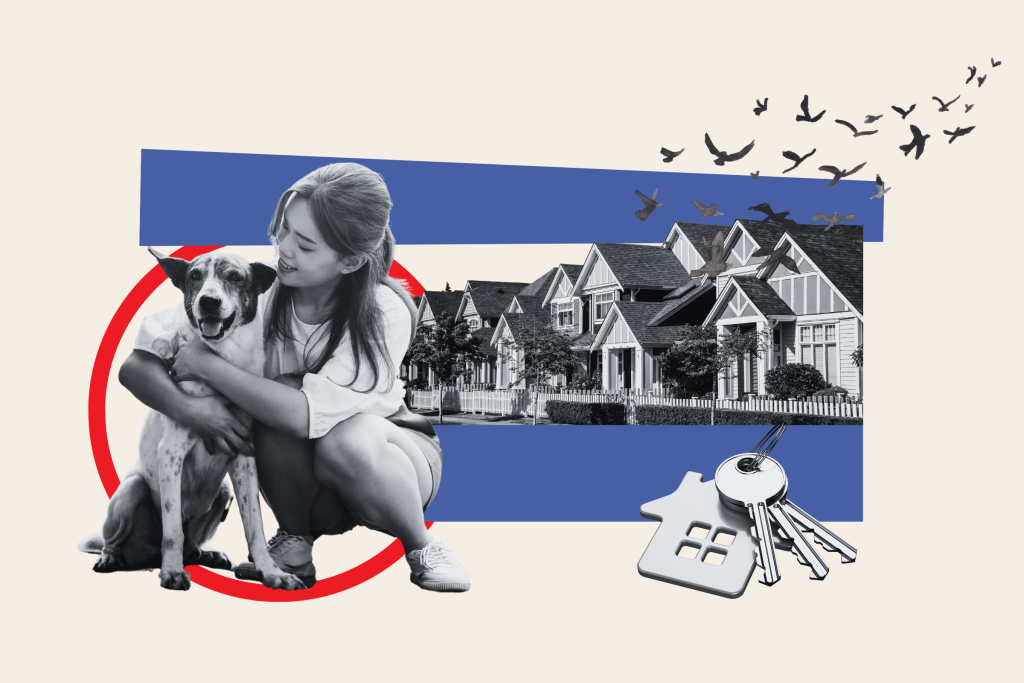An exclusive survey by Talker Research for Newsweek has revealed that Generation Z wants more pets, but their housing situation is keeping them from achieving that dream.
The survey of 1,000 U.S. adults shows that 81 percent of Gen Z respondents, aged between 18 and 27, have pets—more than any other generation. However, of those who don’t have pets, 71 percent said it was because of living restrictions, including space constraints and building rules.
Dr. Lynette Hart, a veterinarian who spoke on the topic at the recent AVMA Convention 2024, highlighted the ongoing global discussions around housing and pets.
“Our International Steering Group has been meeting on housing with pets since 2021. We are identifying research gaps and informing each other and the public about current policies and problems regarding housing with pets. It’s an international problem that has unique features in each country,” Hart told Newsweek.
Data from the 2021 Pet-Inclusive Housing Report show that while 76 percent of property owners or operators say their properties are pet friendly, only 8 percent are free of all breed, weight or other pet restrictions.
“In the U.S., landlords typically claim to allow pets,” Hart said. “But in a Texas study, landlords in at least 90 percent of towns or counties had breed or size limits. A common requirement for dogs is that they weigh less than 20 pounds. This excludes some of the most friendly, calm breeds, while smaller dogs tend to be much more barky and reactive.”
When landlords do allow pets, some request additional fees to cover potential loss or damage. A study published in Frontiers in Veterinary Science in 2021 found that less expensive pet-friendly listings were more likely to have pet fees charged on top, disproportionately impacting lower-income families.
“Not Being Able to Have a Pet Can Be Emotionally Devastating”
“Pet deposits and higher rent costs with pets are also common in the U.S.,” said Hart. “These problems particularly impact people with limited incomes: elderly, students, people with disabilities.”
For many in these groups, pets serve as emotional lifelines.
“We now have a societal awareness of the emotional cost of pet death or loss. Not being able to have a pet is another type of pet loss that can be emotionally devastating. This is especially true for isolated or lonely people, for whom a pet can become a compensatory lifeline,” Hart explained.
Alexandra Alvarado, director of marketing and education at the American Apartment Owners Association, emphasized the concerns landlords face with pets.
“Many properties are not designed with pets in mind, especially larger animals, and this raises concerns about damage to flooring or other interiors. Carpets are particularly vulnerable, while more durable materials like hardwood or tile are more pet-friendly,” she told Newsweek.
“Untrained Pets Can Cause Significant Damage”
“Untrained pets can cause significant damage, and landlords often struggle to enforce pet-related rules after a lease is signed. This is especially true in states where security deposits are capped, making it harder to cover repair costs,” Alvarado explained.
Despite the challenges, Alvarado encouraged landlords to consider allowing pets, as pet-friendly properties attract more tenants.
“The rise in pet ownership post-pandemic gives landlords a competitive edge if they allow pets, and they can charge higher rents or pet fees to offset potential risks,” she said.
The survey found that housing restrictions are the most significant barrier for Gen Z, but the financial burden is another substantial factor. While Gen Z is passionate about pet ownership, financial challenges and rising rent and living expenses make it difficult to afford a pet.
Twenty-nine percent of younger survey respondents cited cost as a major reason for not owning a pet. Covering expenses like food, vet care, and housing fees makes it difficult for many in this generation to afford pets.
Despite barriers in pet ownership, Gen Z remains enthusiastic about pets. When asked how many pets they would ideally like to own at once, 39 percent of Gen Z respondents said they’d like one pet, and 31 percent said they’d like two. Remarkably, 17 percent of Gen Z respondents said they’d like three pets, compared to 10 percent across all age groups.
Only 6 percent of Gen Z respondents without pets said this was because they didn’t want the responsibility, compared to 43 percent of Silent Generation respondents and 30 percent of Baby Boomers.
This random double-opt-in survey was conducted by market research company Talker Research. Talker Research conducted this survey of 1,000 Americans.
The post Gen Z Want More Pets—But There’s a Housing Problem appeared first on Patabook News .

